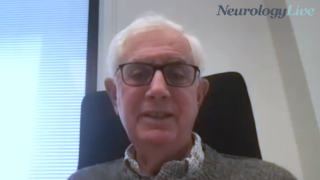
Multiple Sclerosis
Latest News
Latest Videos

CME Content
More News

The executive vice president of research at the National MS Society talked about how the award continues to honor transformative multiple sclerosis research and inspire the next generation of investigators. [WATCH TIME: 5 minutes]

The director of NYU Langone's Multiple Sclerosis Comprehensive Care Center discussed the importance of early, high-efficacy treatment for pediatric MS. [WATCH TIME: 3 minutes]

Experts discussed recent advancements in diagnostic criteria, imaging techniques, and the evolving understanding of multiple sclerosis subtypes and treatment responses. [WATCH TIME: 10 minutes]

The Melissa and Paul Anderson President’s Distinguished Professor of Neurology, Perelman School of Medicine, University of Pennsylvania discussed evolving insights into the cellular immunology of multiple sclerosis. [WATCH TIME: 4 minutes]

Long-term data from a phase 2 study extension suggest that frexalimab, a CD40L inhibitor, maintains disease control and is well-tolerated in relapsing multiple sclerosis, reinforcing its potential as a next-generation treatment.

The company's phase 3 MUSETTE trial reported that an increased ocrelizumab dose did not further slow disability progression but reinforced the efficacy of the approved 600 mg dose.
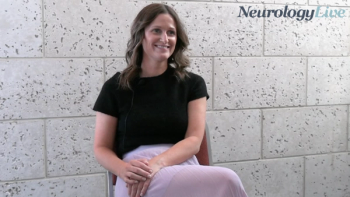
The assistant professor in the department of neurology at Mount Sinai discussed distinguishing cognitive impairment in MS from AD emphasizing orientation as a key differentiator. [WATCH TIME: 5 minutes]
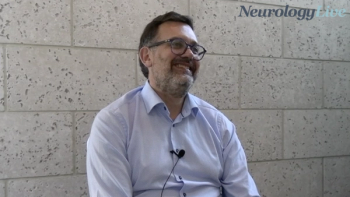
Challenges and Trust in Telehealth Integration for Multiple Sclerosis Care: Enrique Alvarez, MD, PhD
The professor of neurology at University of Colorado School of Medicine talked about the challenges of telehealth and device-based data collection in clinical practice. [WATCH TIME: 4 minutes]

The professor of neurological sciences at the University of Vermont discussed the work of the MS Differential Diagnosis Consortium, highlighting efforts to refine MS differential diagnosis and improve clinical accuracy. [WATCH TIME: 8 minutes]

The medical director of the Barlo Multiple Sclerosis Program at St Michaels Hospital discussed findings from phase 3 trials suggesting that baseline PRLs can predict disability accumulation and may serve as biomarkers for treatment response to tolebrutinib. [WATCH TIME: 6 minutes]

Take 5 minutes to catch up on NeurologyLive®'s highlights from the week ending March 14, 2025.

Kathleen Costello discusses her new role as interim CEO of the CMSC. She has the support of Jeff Wilken, CMSC president, and Tina Trott, CMSC director.
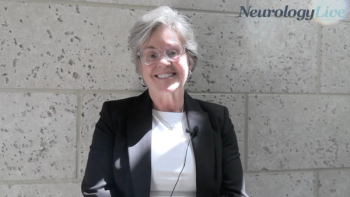
The interim chief executive officer at the Consortium of Multiple Sclerosis Centers invites healthcare professionals to the Consortium’s annual meeting from May 28–31 in Phoenix, Arizona. [WATCH TIME: 2 minutes]

The associate researcher at the University of California, San Francisco discussed a refined EAE model that could better replicate MS pathology, enabling deeper insights into demyelination, neuronal loss, and remyelination. [WATCH TIME: 6 minutes]

The professor of neurology and neurosurgery at McGill University discussed the evolving understanding of neuroimmune interactions in MS, highlighting how these interactions contribute to disease progression and potential repair mechanisms. [WATCH TIME: 4 minutes]

The assistant professor in the department of neurology at Mount Sinai talked about a recent study that highlighted how socioeconomic status and diet could significantly impact physical and cognitive outcomes in patients with MS. [WATCH TIME: 2 minutes]

The professor of neurology at University of Colorado School of Medicine discussed the evolving landscape of MS treatment, highlighting the role of personalized medicine and biomarker-driven decision-making. [WATCH TIME: 5 minutes]
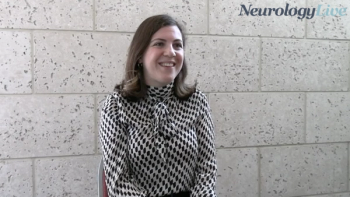
The instructor in the department of radiology at Weill Cornell Medicine discussed how structural and functional brain connectomes can potentially improve predictions of MS progression and treatment response. [WATCH TIME: 4 minutes]

A post-hoc analysis of patients from the CHAMPION-NMOSD trial revealed that the majority received their initial meningococcal vaccination within 6-months of their last rituximab dose.

Take 5 minutes to catch up on NeurologyLive®'s highlights from the week ending March 7, 2025.
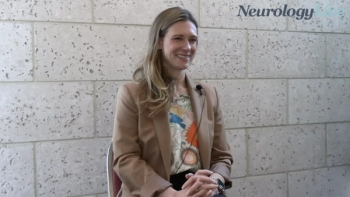
The professor of neurosurgery and physiology at University of Colorado School of Medicine talked about how vagus nerve stimulation may promote remyelination and functional recovery in multiple sclerosis. [WATCH TIME: 4 minutes]

A late-breaking study presented at the 2025 ACTRIMS Forum reported that a modified Atkins diet reduced inflammation and altered immune cell metabolism in multiple sclerosis.
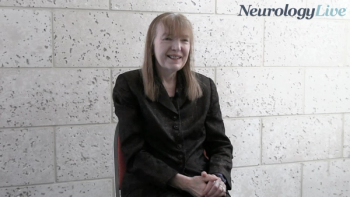
At the 2025 ACTRIMS Forum, the director of the MS Comprehensive Care Center at Stony Brook Medicine discussed the evolution of high-efficacy treatments for MS. [WATCH TIME: 4 minutes]
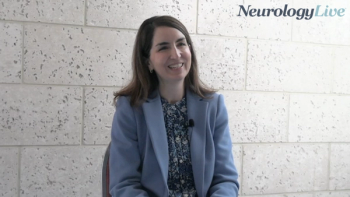
Detecting Progression in Multiple Sclerosis With Wearables and Imaging: Jacqueline Nicholas, MD, MPH
At the 2025 ACTRIMS Forum, the system chief of neuroimmunology and multiple sclerosis at OhioHealth discussed the need for better tools to detect MS progression. [WATCH TIME: 3 minutes]
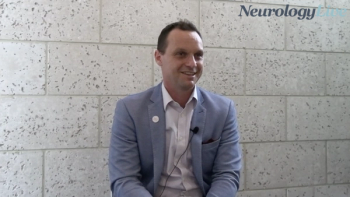
The assistant professor of neurology and neurosurgery at McGill University discussed the role of paramagnetic rim lesions as potential biomarkers of compartmentalized inflammation in MS. [WATCH TIME: 4 minutes]







